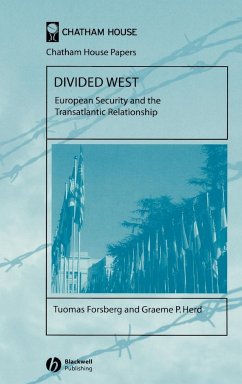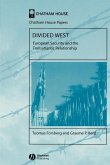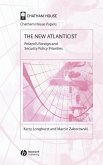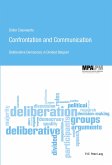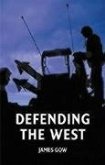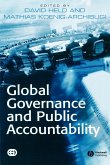9/11 and its aftermath helped make more visible divergent transatlantic approaches to the legitimacy of military intervention, the utility of 'coalitions of the willing', the effectiveness of regime change and the use of coercive force within the international system. The Iraq War and the strategic dissonance it generated led many to warn against the danger of transatlantic strategic divorce, and push for transatlantic strategic realignment. The book is structured around an analysis of five Europes - 'Atlantic', 'Core', 'New', 'Non-Aligned' and 'Periphery' - which appeared to have consolidated in this period. It argues that transatlantic strategic dissonance will be an enduring feature of the Euro-Atlantic security environment as it reflects economic and military power differences, the shifting values and identities and the policy and institutional preferences of all five Europes and the US. The book concludes by arguing that transatlantic strategic dissonance and a divided West contains the potential to constitute a viable platform for the constructive management of the global security agenda, as well as regulate relations within this security community.
Hinweis: Dieser Artikel kann nur an eine deutsche Lieferadresse ausgeliefert werden.
Hinweis: Dieser Artikel kann nur an eine deutsche Lieferadresse ausgeliefert werden.
'This well-structured, crisply written volume is one of the best- and certainly one of the most succinct and conceptuallyinteresting - to have been authored on that battered entityknown as the transatlantic relationship. Quietly but effectivelychallenging the official myth that the crisis is now past, Forsbergand Herd reveal beyond all possible doubt that the trauma thatarose as a result of Iraq and 9/11 still remains unresolved and, inofficial circles at least, little understood. Divorce may not be onthe cards just yet. Nonetheless, difficult and problematic timeslie ahead. A sobering, indeed essential read for policy-makers andacademics on both sides of an ever-widening Atlantic.'
Michael Cox, London School of Economics
'Divided West makes a unique contribution to a vastliterature on transatlantic relations. Rather than complaining howbad things are, the authors offer a lucid theoretical framework inwhich the current transatlantic imbroglio is clinically dissected.It is clearly the most thorough and thought-provoking bookavailable in the field.'
Peter van Ham, Clingendael Institute, The Hague
'This book makes uneasy but essential reading forAtlanticists and Europeanists. At the interface of theory andpolicy, this superb analysis plunges deep into the divide that istoday's West and pulls no punches about the implications ofstrategic dissonance. It is quite simply a must read for anyone whocares deeply about the West and Europe's place withinit.'
Julian Lindley-French, Centre for Applied Policy, University ofMunich
Michael Cox, London School of Economics
'Divided West makes a unique contribution to a vastliterature on transatlantic relations. Rather than complaining howbad things are, the authors offer a lucid theoretical framework inwhich the current transatlantic imbroglio is clinically dissected.It is clearly the most thorough and thought-provoking bookavailable in the field.'
Peter van Ham, Clingendael Institute, The Hague
'This book makes uneasy but essential reading forAtlanticists and Europeanists. At the interface of theory andpolicy, this superb analysis plunges deep into the divide that istoday's West and pulls no punches about the implications ofstrategic dissonance. It is quite simply a must read for anyone whocares deeply about the West and Europe's place withinit.'
Julian Lindley-French, Centre for Applied Policy, University ofMunich

